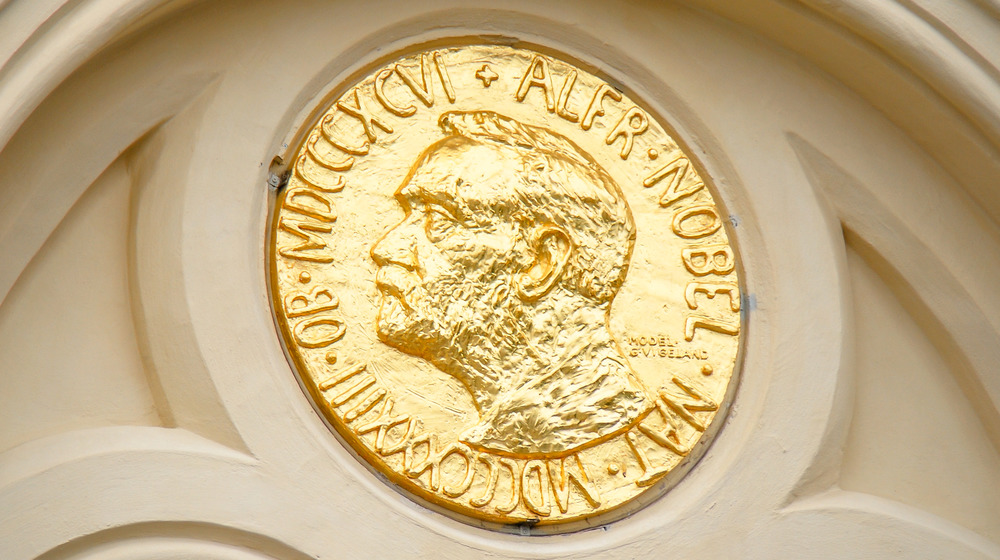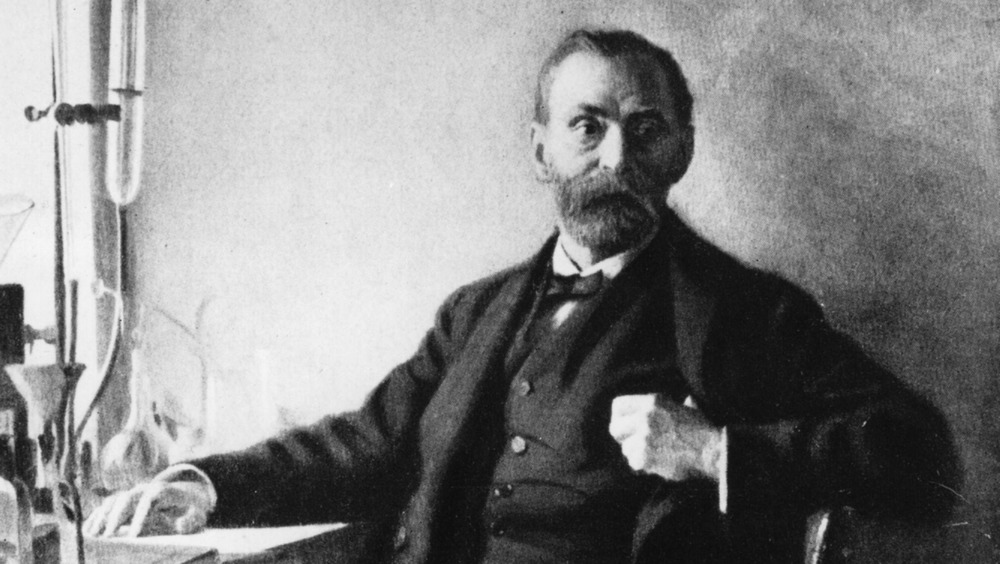How The Nobel Prize Is Financed With Blood Money
As the official website for the Nobel Prize reports, these prestigious prizes are awarded for achievements in the fields of Physics, Chemistry, Medicine, Literature, Peace and Economic Studies. Past Nobel Laureates include Albert Einstein and Marie Curie. Despite the great cachet it holds, though, the Nobel Prize has a dark and sordid history.
The Nobel Prize was the brainchild of Alfred Nobel, acclaimed Swedish engineer and chemist. It's very fitting that his legacy would be a championing of others' great achievements in the field of science (and beyond). There's much more to the legacy of his namesake awards, however. Much more and much, much worse.
Recipients of this extravagant honor are very often titans in their fields, whose work has expanded humanity's knowledge of the world. Or sometimes they're Nils Gustaf Dalen, who slightly improved the functionality of lighthouses. It's not exactly making a real-life Jurassic Park, but a Nobel Prize also comes with a handsome cash prize.
A 'Peace' prize funded by explosives
The prize's official website reveals that the prizes' monetary reward has fluctuated, but the first Nobel Prizes in 1901 came with an award of 150,782 Swedish krona (8,722,510 Swedish krona, or a little over $1 million, today). This money comes from Nobel's highly controversial estate.
As stated by Britannica, Nobel made his fortune through his great success as an engineer (following in his father's footsteps). His brilliance as a chemist, as well as his experience developing explosives for the military during the Crimean War, saw him go on to make an incredible fortune from the deaths and despair of others.
His work on nitroglycerin and development of a blasting cap/blasting gelatin to stabilize it proved to be incredibly lucrative (though it remained volatile, and a factory explosion in 1864 killed his brother Emil and several others). These were the precursors of the deadly explosives still used in warfare today, developments that may never have occurred without Nobel. He died in 1896, and his will stated that his vast fortune was to be left to establish the awards that bear his name.
This is the dichotomy of Nobel's legend. A philanthropist who strove to elevate his peers, who was once deemed "Le marchand de la mort" ("the merchant of death") by a newspaper (though, as Britannica reports, this newspaper had mistaken him for his brother Ludvig). A brilliant scientist whose greatest innovations would be some of the most destructive in history.

